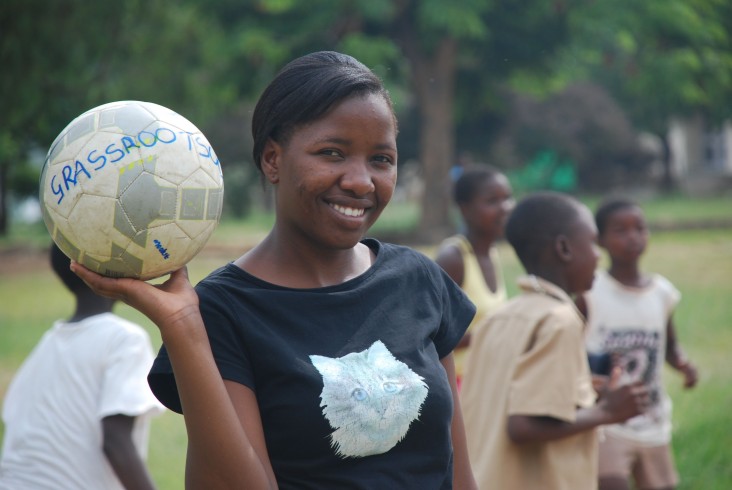
Fortune said she was too young to comprehend the loss of her mother. Six years later, when she lost her father to AIDS and had to live with her uncle, she felt the loneliness of a parentless life. Scholarships got her through secondary school since her uncle could not afford it. When she graduated, she discovered Grassroots Soccer.
Too old to be a participant, Fortune offered to be a volunteer facilitator with the program. She stood out as a committed and passionate volunteer and went on to intern at the head office.
“I felt that as an orphan, I could help other children like me just by sharing what I’ve been through,” Fortune said.
The innovative organization, which benefits from USAID funding through Children First, uses the power of soccer to provide rigorous health education focusing on HIV and AIDS and is led by coaches who engage students in critical learning about HIV prevention. It also provides psychosocial support and the opportunity for kids to form trusting relationships with responsible adults. This aspect of the program is especially important because many of the program’s children lack positive role models at home.
While her father was sick, no one explained to Fortune about HIV or helped her in the grieving process after his death.
“If I had participated in the Grassroots Soccer program when I was younger I think I would have dealt with my father’s situation in a different way…If I knew then what I know now about HIV, I might have understood what was going on,” she said.
A 2007 evaluation found that youth who went through the program had significantly reduced incidences of multiple sex partners compared to those who did not participate.
This year, the program has expanded to reach 3,000 children in Bulawayo schools.
Having lost both her parents, Fortune understands the stigma and shame that goes along with being an orphan but said that while judging happens on the street, it’s absent on the field.
“On the field there is no judgment. It’s about being a team.”







Comment
Make a general inquiry or suggest an improvement.